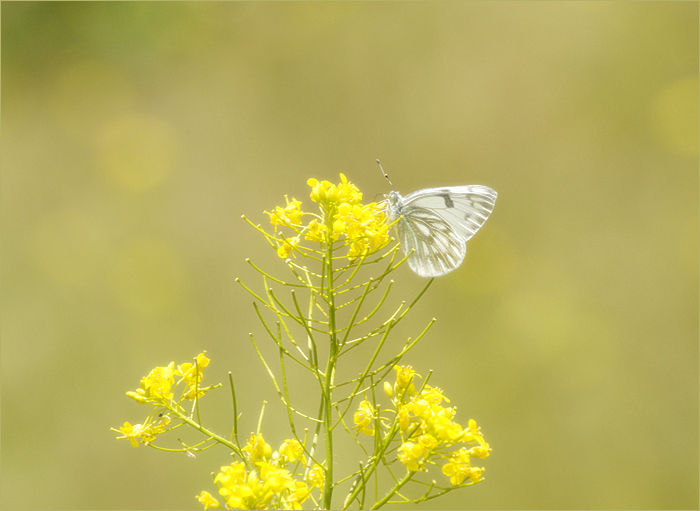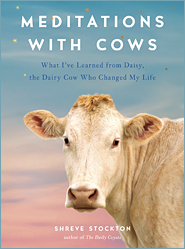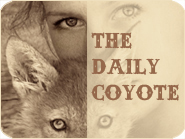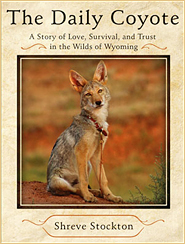To Bee III
☆ May 31, 2017
I’d been told beekeeping goes from hobby to obsession very quickly, and though I heard this numerous times from numerous people, I remained skeptical. Obsession? I assumed hyperbole.
Well, let me add my voice to the chorus:
O B S E S S E D !
I am obsessed with my bees, with all bees, and will do anything and everything I can to encourage others to become bee guardians, too.
I have a top bar hive, so I can only speak on that – I have no experience with Langstroth hives (the boxes) or Flow hives. Top bar hives mimic a hollow tree or other cavity that wild bees would naturally make their home. Put simply, Langstroth hives were designed to prioritize the beekeeper’s time and profits, and top bar hives prioritize the bees, giving them a home quite similar to what they would look for in the wild. It’s also much cheaper to get into beekeeping with a top bar hive – materials to build my hive cost $28 (even if you hired someone to build your hive [free plans are numerous online], it can be built in a day), and there’s no need to buy extra equipment like plastic comb foundation or a centrifugal spinner to harvest honey. To harvest top bar hive honey, you just cut a honey-filled comb off the top bar, crush it into cheese cloth over a bowl, and let the honey strain from the comb.
Speaking of honey: I am doing this for the bees, not the honey. I will harvest very little, if any, honey this summer. My bees are starting from scratch – they must build all their comb, plus expand their colony numbers, plus make honey stores to last the winter. Even in established hives, you just take surplus honey and leave them plenty to eat all winter and into the spring. Beekeepers get less honey from a top bar hive than a Langstroth hive, but more beeswax.
I have wanted to get bees for years but always put it off because I didn’t feel I had the time to take it on. Turns out, the bees really don’t need much of your time – in a top bar hive, they get on just fine without you! Bees have been living strong, happy lives in the wild for a very long time. I think a person could get a top bar hive, have a local beekeeper install the bees, and never touch it again. Like a birdhouse: no one pokes around in a birdhouse, they just provide a safe, cozy house for a bird. But, it also turns out, you MAKE time. Thousands of tiny seductresses lure you back and back again. It’s shockingly easy to make time for the bees. See: obsession.
I’ve also been pondering where people might set up community hive yards in suburban and urban areas, when having backyard or rooftop hive might not be feasible due to space, neighbors, or zoning. (A hive yard is a designated area for multiple bee hives, just as a stack yard is a designated area for haystacks.) Placing a community hive yard in public parks and gardens might not go over well with the general population. I must credit Mike with this brilliant idea: place community bee yards in the back of cemeteries!
Mike has an epic fear of bees but he, too, has fallen in love with my bees and is eager for me to get more. He hasn’t been in the hive with me, or even very close, but is taking baby steps to spend time with the bees and wants to build a bunch of hives.
Going back to bee fear – that’s big for some people. Bees have different temperaments, and it really depends on the genetics of the queen and the drone with whom the queen mated whether you have gentle bees or grouchy bees. Therefore, it matters where you get your queen – I got mine from local bee guys with a great reputation, and my bees are calm and gentle. They deserve respect, but not fear. Bees ask you to get calm and centered and to stay calm and centered. And to just slow down when you are with them. Zen and the art of beekeeping…..
Going into a beehive is like entering another world, another realm, and having a local bee mentor is so beneficial. Being able to shadow an experienced beekeeper diffuses all the giant question marks. My friend Carol let me tag along when she worked her hives last fall, and I credit an enormous percentage of my budding knowledge and success to her willingness to share her knowledge and success with me.
“In the hive” means taking the lid off the hive and lifting the bars out to check for the queen, for eggs (if you don’t see the queen but see eggs, you know your queen was A-OK three days prior), for cross-comb, to add room, etc. My hive has a false wall right now, about a third of the way back, so the colony is not overwhelmed by too much space and can regulate the temperature more easily. I’ve moved the false wall back once, and will move it again the next time I’m in the hive.
I’ve never used smoke with my bees; I don’t even have a smoker. Since Wyoming can be so incredibly vulnerable to fire in the summer, I wanted to be sure I could work with my bees without being dependent on a smoker. But this can be another layer of protection against bee fear.
Going into the hive disrupts the bees and I have to force myself not to do it as often as I want to. Right now I go into the hive about every two weeks, but I visit them and sit outside the hive with them and watch them fly in and out and listen to them through the walls much more often. My next hive will have a viewing window!!
I saw capped drone cells earlier in May, and saw a number of drones walking around the combs when I checked in on the bees over the weekend. This is proof my bees are feeling strong and confident. Drones are male bees (and they have no stinger). They don’t help out in the hive – they are not worker bees – and they will eventually fly off with the goal of mating with virgin queens that might be in the area. Even though drones are a drain on colony resources (honey, cells, care, etc), bees like raising drones in the spring. [edited to add: worker bees decide when and whether to raise drones (and queens, for that matter) – the male/female aspect not determined by chance as it is with mammals, it’s a calculated decision made ahead of time.] If one of these drones mates with a wild virgin queen, the genetics of this hive live on, elsewhere. If hives didn’t produce drones, there would be no males to mate with virgin queens and all bees would eventually die off. So, my colony is giving a lot of energy and resources to raising these drones, with no direct benefit in return, but they do it for the greater good. WE HAVE SO MUCH TO LEARN FROM BEES.
Les Crowder, bonafide bee whisperer, has a wonderful little book called Top-Bar Beekeeping that I highly recommend, even if you’re not going to become a beekeeper and just want to learn more about bees and how you can support them. Even if you can’t keep a hive, there are many other ways to support the bees. We all make agricultural choices every day, even if we don’t realize it: FOOD = AGRICULTURE and FOOD = MONEY. Every time we buy food, we fund the agricultural practices that produced the food we just bought. Buying organic whenever possible is such an important part of being a bee guardian, especially organic meat and dairy! Corn is the primary staple of conventional feedlot and factory farmed meat and dairy, and corn is by far the biggest culprit when it comes to neonicotinoid pesticides, which are linked with Colony Collapse Disorder, which is decimating the bee population. As Les Crowder writes, “Bees are like the canary in the coal mine, letting us know our environment has become too poisonous.”
May I take a moment to rant? Why is it normal for people in the US to spend $40,000 on a car on credit (with interest and full coverage insurance on top of that), but then buy the cheapest food they can find? It’s so backwards! Spend less than $10,000 on a car and $10+/lb on meat and cheese and I’m willing to bet those same people would come out ahead in health and happiness… and financially. (And if you’re in the market for organically, ethically, humanely raised meat, may I direct you to Star Brand Beef – there’s just a few weeks left to order for July and August delivery.)
Anyway. I have been thinking so much about bees and mycelium and humanity. Our potential (ours as humans – the bees and mycelium are already honorably living up to theirs). How much we must remember and relearn. How diligent we must be in all our choices, because every single choice we make is linked with everything, everywhere.
Comments
32 Responses to “To Bee III”
Leave a Reply









May 31st, 2017 @ 8:39 am
I have never used smoke either (this is my second year of beekeeping) but instead i use a 1 to 1 solution of sugar water with a few drops of lemongrass essential oil. i put that in a spray bottle and just spritz them when i open the inner cover. they just lick it off themselves. it worked even when i split my hive – a pretty major invasion boarding on catastrophic. My girls have been so gentle with me which is huge considering i’m still moving up the learning curve. I second your thoughts on setting priorities.
May 31st, 2017 @ 9:05 am
On an aside, have you made nesting cavities for the native bees? that’s where i started. I have scrap pieces of 4×4 untreated lumber that i have drilled holes into (see Xerces Society for sizes) and placed them all around my property. The leaf-cutter and mason bees are so interesting to watch too. Next up my attempt at bumblebee nests :)
May 31st, 2017 @ 9:45 am
I haven’t seen a post this long from you in ages, girl you are OBSESSED and that’s wonderful. I can’t have (or want to) bees but I plant as many flowers that I know they love to keep them healthy and happy. I’ve noticed that they seem to be more numerous this year so am hopeful that they are recovering from their huge losses in the past few years. Thanks for helping them !!!!!
May 31st, 2017 @ 11:34 am
Hi Shreve, it’s a bummer I will miss your meats again this year due to scheduling. Congrats on another harvest.
May 31st, 2017 @ 12:29 pm
I knew you would love bee keeping.
I’ve thought of setting something up way in the back of my parents’ yard near the edge of the canyon. No way they’d tolerate a bee hive. But we also have solitary bees in our county. I thought maybe a bunch of cut bamboo tubes in an open box. Those bees need no maintenance at all. They don’t really produce honey either. They just pollinate your yard. Something we can always use more of.
http://www.instructables.com/id/Solitary-Bee-Habitat/
May 31st, 2017 @ 1:30 pm
I so enjoyed reading this, Shreve. Such an education and something I’ve long wanted to welcome into my life.
Thank you for the wonderful inspiration.
This year I’m raising chickens for the first time. It’s life changing for me. They’re such delightful companions, and what a wonderful bonus that they’re providing rich compost and, in a few months, eggs. I’ll someday brave having meat chickens, too.
And bees are next. I love them and can’t wait.
May 31st, 2017 @ 1:43 pm
Lovely ruminations on lovely creatures!
One piece I read on CCD said something along the lines of, “the bees seem to have just up and disappeared. It’s like aliens came to Earth looking for the most intelligent life and took it with them.”
May 31st, 2017 @ 1:57 pm
A ~ neonicotinoids cause nerve damage to pollinators which affects the bees ability to navigate, and they can’t find their way home {{insert a million sobbing emojis here}}
LOVE that line you quote! Brilliant and hilarious take on a sad topic…
May 31st, 2017 @ 1:59 pm
S ~ thank you for the tip!!!
May 31st, 2017 @ 3:27 pm
Shreve, with top bar hives, how much beeswax do you anticipate harvesting from one hive?
May 31st, 2017 @ 4:54 pm
Regarding priorities… I couldn’t agree more!
May 31st, 2017 @ 7:30 pm
You don’t even need to plant special flowers for bees in suburban yards – just don’t use any pesticides (which includes herbicides) on the lawn. Instead, the bees will enjoy the “spontaneous lawn flowers”(just think of the clover, dandelions, etc. as beneficial wildflowers, and not weeds).
Researchers view natural, pesticide-free yards as “bee habitats”. Flowering plant species such as dandelions and clover are valuable nectar and pollen sources for all sorts of species of bees (and also for butterflies).
A recent study was done on this topic and found that 17 untreated suburban lawns (in Springfield MA) had 111 species of bees visiting 17 suburban properties (which had 63 plant species in thelawns – the most numerous being dandelions and clover) https://academic.oup.com/aesa/article/109/5/713/2195339/Bee-Fauna-and-Floral-Abundance-Within-Lawn
June 1st, 2017 @ 7:29 am
Story – So I bought one of the Living Social coupons for a bee keeping class. Well when the weekend came up – hubby had a big train show to work and I gave my ticket to my boss. Well, I started something there – he and his wife now have over 20 hives in the area. 5 on their property! He also takes a day off here and there to go rescue wild hives in the area. A coworker had a hive build in her window A/C unit over the winter – that hive has now been relocated to the back of her property into a top bar hive and they are HAPPY BEES!
I am so happy you are now tending to Bees.
June 1st, 2017 @ 8:19 am
P ~ That is an AWESOME story!!!!
June 1st, 2017 @ 8:57 am
God, Shreve! This is so cool! I wish I was your next door neighbor. You create the most amazing adventures. I want bees! I live in a city – don’t know how that would work – but living it through you is so great.
June 1st, 2017 @ 8:59 am
Where we live, the bees have all but disappeared. We used to sit still in the backyard and all the blossoms would just start moving with bees. Not now, it’s so quiet outside. Thank you for doing what you do and being who you are.
June 1st, 2017 @ 9:19 am
Thank you Shreve! I learned so much. What a relief to read something positive and constructive apart from the stressful news of the day from our current administration (I dare not say “leaders.”)
June 1st, 2017 @ 9:23 am
I am lucky to have lots of bees to pet in my yard… and I am seriously considering a top bar hive! Even in my small town my neighbors are wonderful about bees (and possible chickens). I have never been afraid of bees. Wasps are another story.
June 1st, 2017 @ 9:26 am
Wonderful post. I’ve been mildly interested in beekeeping for 2 years now & didn’t realize a top bar existed. Can’t wait to order the book you recommended also.
Thank You!
June 1st, 2017 @ 11:14 am
Always interesting to hear about your obsessions. Informative as well.
I should ask my family’s ranch manager (one of my cousins) how the beekeepers who put hives on our property are doing. We’ve been transitioning to a completely organic ag operation for awhile, so locally that’s less stress on any hives. There is probably more we could do in terms of providing food sources, though the local bees certainly love the big beds of rosemary we have around the two main houses.
Wild hives used to be a common sight on my walks through the ranch’s main canyon, but not in the last decade. Though it’s been awhile since I took that walk.
June 1st, 2017 @ 12:26 pm
So awesome, Shreve!! Totally jealous of your bee adventures. What, if anything, do you plan on doing with the abundance of beeswax?
June 1st, 2017 @ 10:26 pm
Once again I am in awe of your genuine love of the universe. Looking forward to my beef this year!! Buying more so I can share with my children and sister and her family.
I am utterly disappointed at the fact that people become vegetarian for reasons of animal cruelty etc. but don’t realize all the damage caused by GMOs. And to think I learned all about GMOs and their damage to teach a class. I really made the students research and think about the consequences
Enough ranting. Just tired of those that think we can continue to mistreat our Mother Earth and expect any good to come out of it – but I will do my part – and have hope that others will learn from the examples set by people like you.
June 1st, 2017 @ 10:26 pm
Once again I am in awe of your genuine love of the universe. Looking forward to my beef this year!! Buying more so I can share with my children and sister and her family.
I am utterly disappointed at the fact that people become vegetarian for reasons of animal cruelty etc. but don’t realize all the damage caused by GMOs. And to think I learned all about GMOs and their damage to teach a class. I really made the students research and think about the consequences
Enough ranting. Just tired of those that think we can continue to mistreat our Mother Earth and expect any good to come out of it – but I will do my part – and have hope that others will learn from the examples set by people like you.
June 3rd, 2017 @ 10:42 am
In the trillions of years I’ve been reading you, I finally discovered one word that sums you up: You are a MARVEL. Your commitment to animals, the environment, your readers, is nothing short of loving and kind.
ION, I am EMBARRASSED to admit this but will anyway. I know bees make honey. What I didn’t know is that they eat it. I don’t know how I thought they stayed alive…bee food from a can? Anyway, thanks for once again, being a marvel.
June 3rd, 2017 @ 9:10 pm
i learned some more about queens. ooooooooooo you will need pics of your queen i am pretty sure you will try and find her. http://beekeepinglikeagirl.com/6-things-you-didnt-know-about-queen-bees/
June 5th, 2017 @ 2:24 pm
Huzzah! as always. BEES ROCK! we have an ever expanding cohort in the garden which makes me really happy and there are bee keepers galore all around.
I used to have huge bee fear, plus the looming prospect of anaphylactic shock. Somehow, especially since we’ve been here? I just kept talking to myself about how truly marvelous bees are, and got to where I really was NOT afraid of bees at all. And now they light on me at times, but never sting. If I can do it, Mike can do it I am SURE!!!
June 9th, 2017 @ 5:37 pm
Haven’t read your article about bees until just now .. You know how things can get :-) This is so fascinating, Shreve!! Thanks so much for sharing all this wonderful info … Bees are important to the existence of us humans!!! The human race could be wiped out if the bees of our earth are lost to us. … This is serious stuff!! Thank you for your passion for protecting our earth mother. The earth needs more humans like yourselves who are respectful of the other living beings that we share with our mother and the things that living beings need to live .. Like healthy air, water and soil …. & the necessary grasses & flowers to feed vital pollinators such as bees …. :-) & butterflies …. These things should be thought about by those that make YUGE decisions in places of power .. Life for humans doesn’t look good >:-( Doesn’t anyone care? :'(
June 12th, 2017 @ 7:44 pm
I just wanted to say that I Love reading your blog whether it is long or short! It is always interesting and so well written, and the photos of course are beautiful and unique!
June 14th, 2017 @ 10:34 am
Thank you for this excellent expose, Shreve. I love bees, and despite nasty wasp stings in my past, I somehow don’t fear honey bees, bumblebees or even wasps. I steer clear of agitated wasps, but I find them all fascinating and find myself rooting for every single one. I’m delighted you are now a beekeeper; you are making a difference and will
continue to make a difference in this essential element of the food chain. Please keep us posted. Again, thank you!
June 15th, 2017 @ 8:03 am
Love this!! You are right on!! I hope to get bees next year. Please keep us updated. I remember when you posted about the movie Queen of the Sun. I took my family to see it at the theater, we were the only ones there. It is a beautiful and informative film. I bought it and have been lending it out to everyone I know. I have a pollinators garden full of Milk weed and Bee Balm. You Rock!
June 16th, 2017 @ 7:23 pm
Wondering if you have seen this:
https://creators.vice.com/en_us/article/artist-fixes-damaged-objects-by-placing-them-in-beehives
June 28th, 2017 @ 1:21 pm
How beautiful and SO true. My heart swells with happiness and love from reading this. Bless your heart dear one, you are SO very special and make SUCH a difference in our world in so many ways. I spend many hours watching YOU TUBE videos of homesteading families and there are so many lovely people out there starting farms, caring for the environment, raising heritage animals, and preserving the “old ways”. I crave this type of living and learning new things. “PRICELESS” for sure. I’m obsessed with organic food and have been eating organic dairy for maybe 12 years? What a difference it makes. I’m so blessed to be surrounded by these farms where I live. One farm very close to me has 11 Bee hives and that honey is SO delicious and helps with my allergies. Thank you for sharing all the lovely stories, so much great information, and for just everything you share with us. You are such a HUGE blessing!! XOXOX